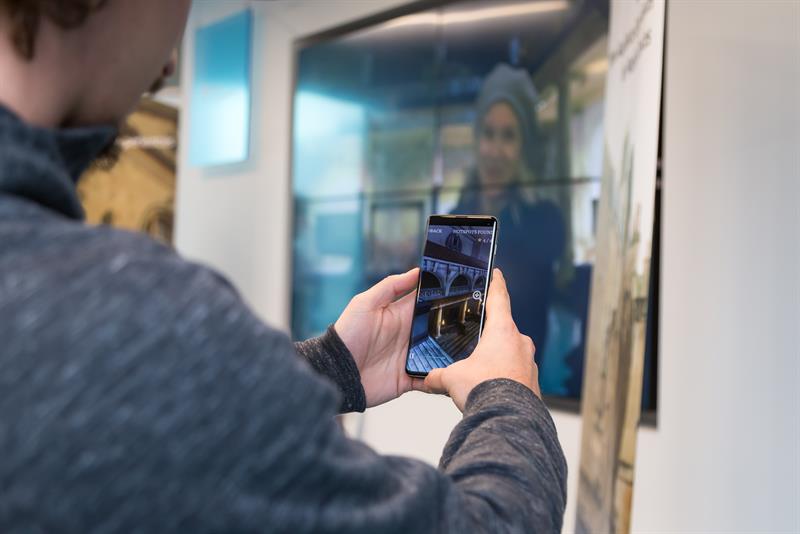The London showcase was the result of a year-long project, developed by the West of England Combined Authority (WECA) and funded by The Department for Digital, Culture, Media & Sport, that brought together 19 companies including Digital Catapult, BBC R&D and Mativision.
The aim was to demonstrate the potential of next generation technologies to augment and extend the reach of immersive cultural experiences in the West of England, including the Roman Baths, Bristol Pride, and Bristol’s Harbour Festival.
As part of the technical work carried out, Digital Catapult connected its 5G testbed in London to the Bristol testbed using 5GUK Exchange – an interconnectivity infrastructure that demonstrates 5G as a network of networks.
The technical lead for designing, building and operating the Bristol 5G Smart Tourism network is the Smart Internet Lab at University of Bristol, led by Prof Dimitra Simeonidou. The network they built used a combination of radio access technologies, from mmWave, WiFi, LTE and 5G, to core networks software that supported network slicing and dynamic management of networks. Through this the 19 companies involved in the project were able to mimic the 5G infrastructure and demonstrate how it could enhance cultural experiences and heritage sites.
Among the examples that the showcase highlighted was the BBC R&D’s virtual Roman Baths experience (below picture). Combined with an app developed with Aardman Animation, BBC R&D use Virtual Reality (VR) and Augmented Reality (AR) content to bring three periods of the Bath’s rich history to life; beginning with the discovery of the hot springs by King Bladud, through disrepair and final renovation during the Victorian Era.

While Mativision demonstrated how 5G can overcome current barriers such as delay through latency. Using a simultaneous, 360° VR experience, the user was immersed in both a virtual version of Bristol Pride and the Harbour Festival event.
But, this is still very much a vision for the future, rather than commercially-ready experiences. “The project was about trialling the tech – seeing if it is feasible, does it work, what are the limitations?” Caminade said.
She added that for the widespread commercialisation of 5G, “we need to wait for capable handsets and wide scale coverage”, and despite UK mobile operators promising the launch of 5g-enabled mobiles by the end of the year, she believes that we’ll have to wait a little longer for the “real full promise of 5G”.
“The business case for 5G beyond mobile broadband (eMBB) is still unclear,” Dritan Kaleshi, head of technology at Digital Catapult, admitted during the closing of the event. “We have an opportunity window to explore the space beyond eMBB (mobile internet) in the next 2-4 years, before the industry engages fully with the next generation technology work.”
He added, “As successful as the 5G Smart Tourism project has been, it is just a step forward into rethinking the digital infrastructure and how it will look in the future – and then making that happen."
“5G is not a race. It is going to take time - technology adoption always needs time. There are a lot of negative nay-sayers and a lot of people hyping it up. We are part of the majority, the realists, that keep pushing forward with purposeful and meaningful innovation that 5G enables.”













